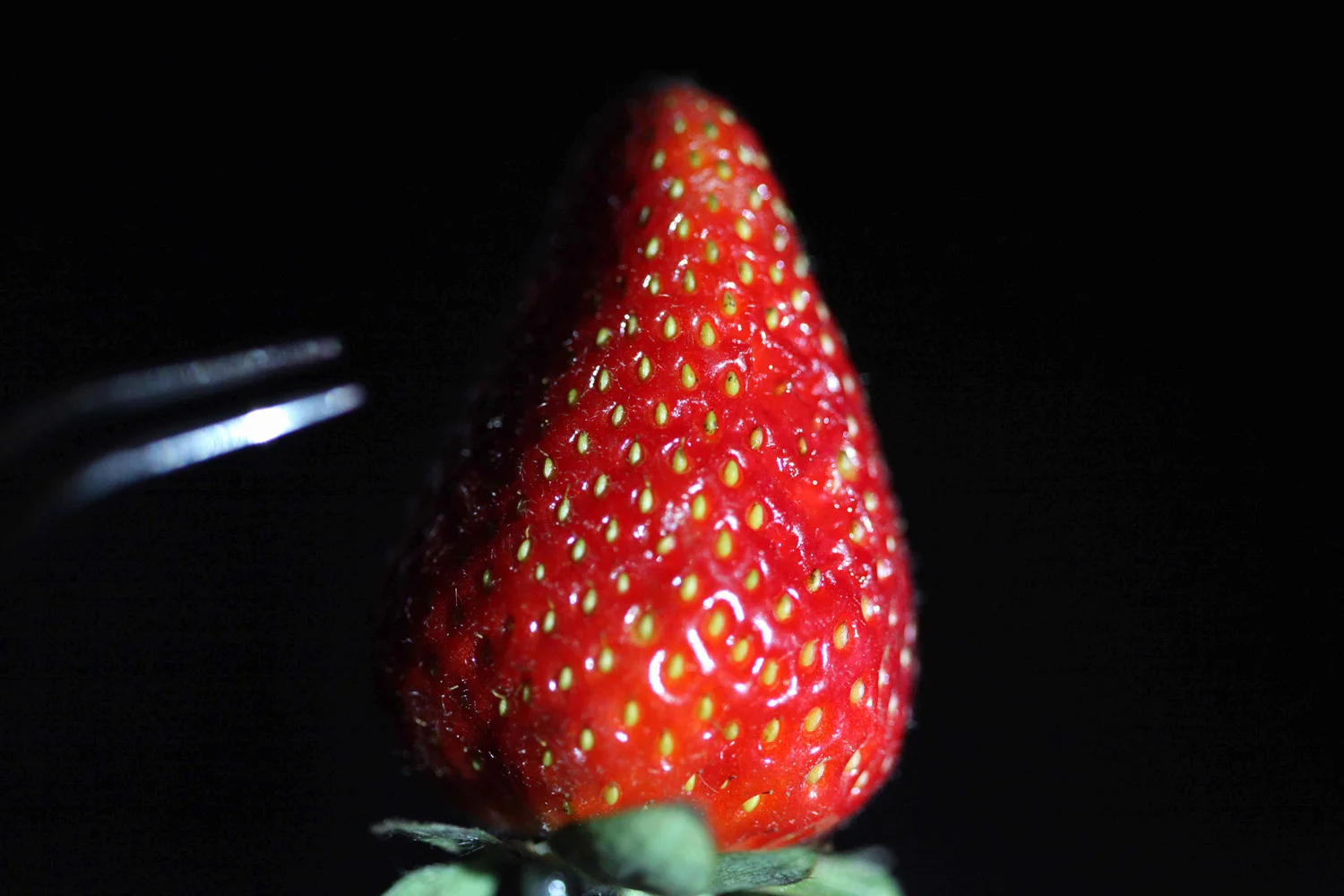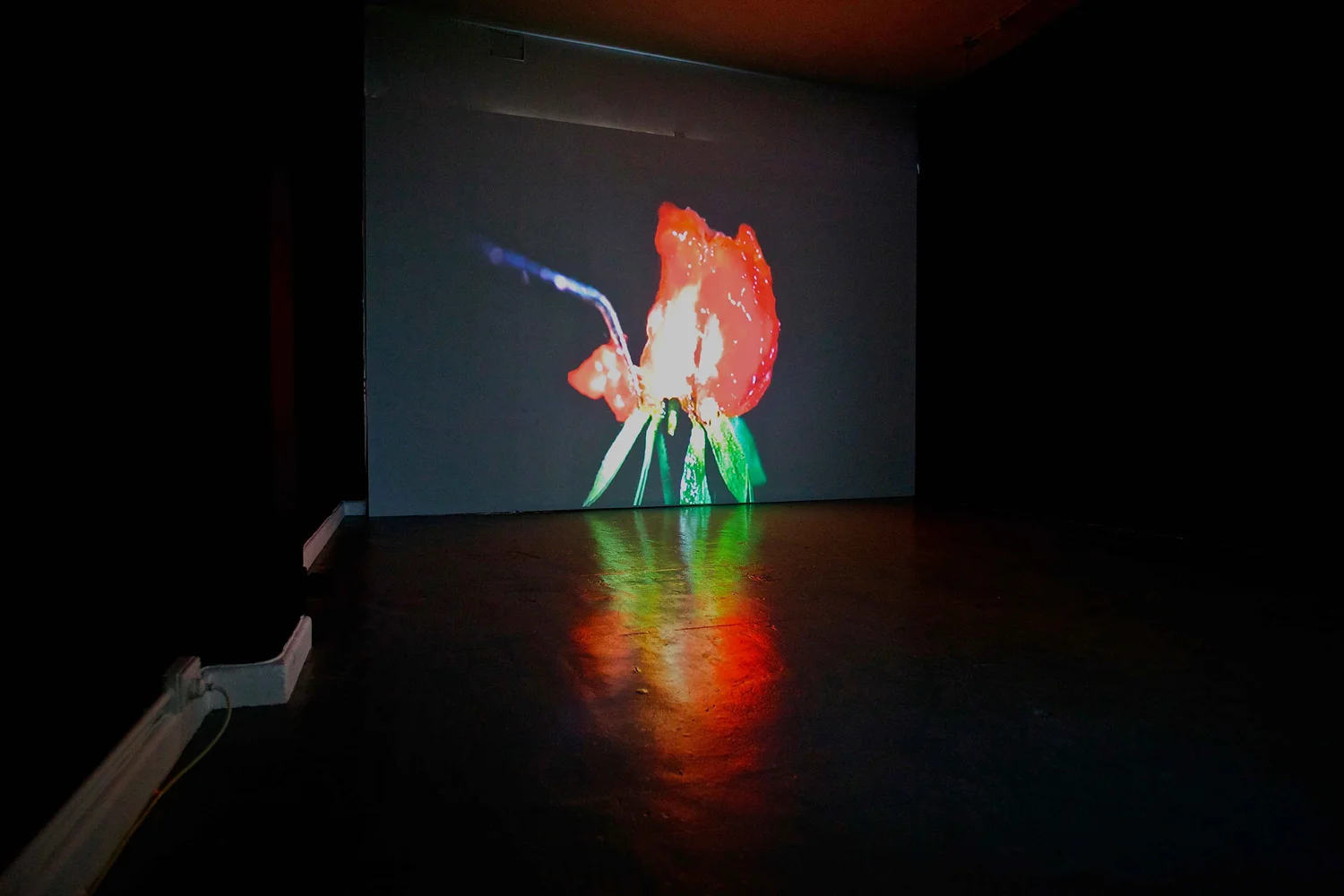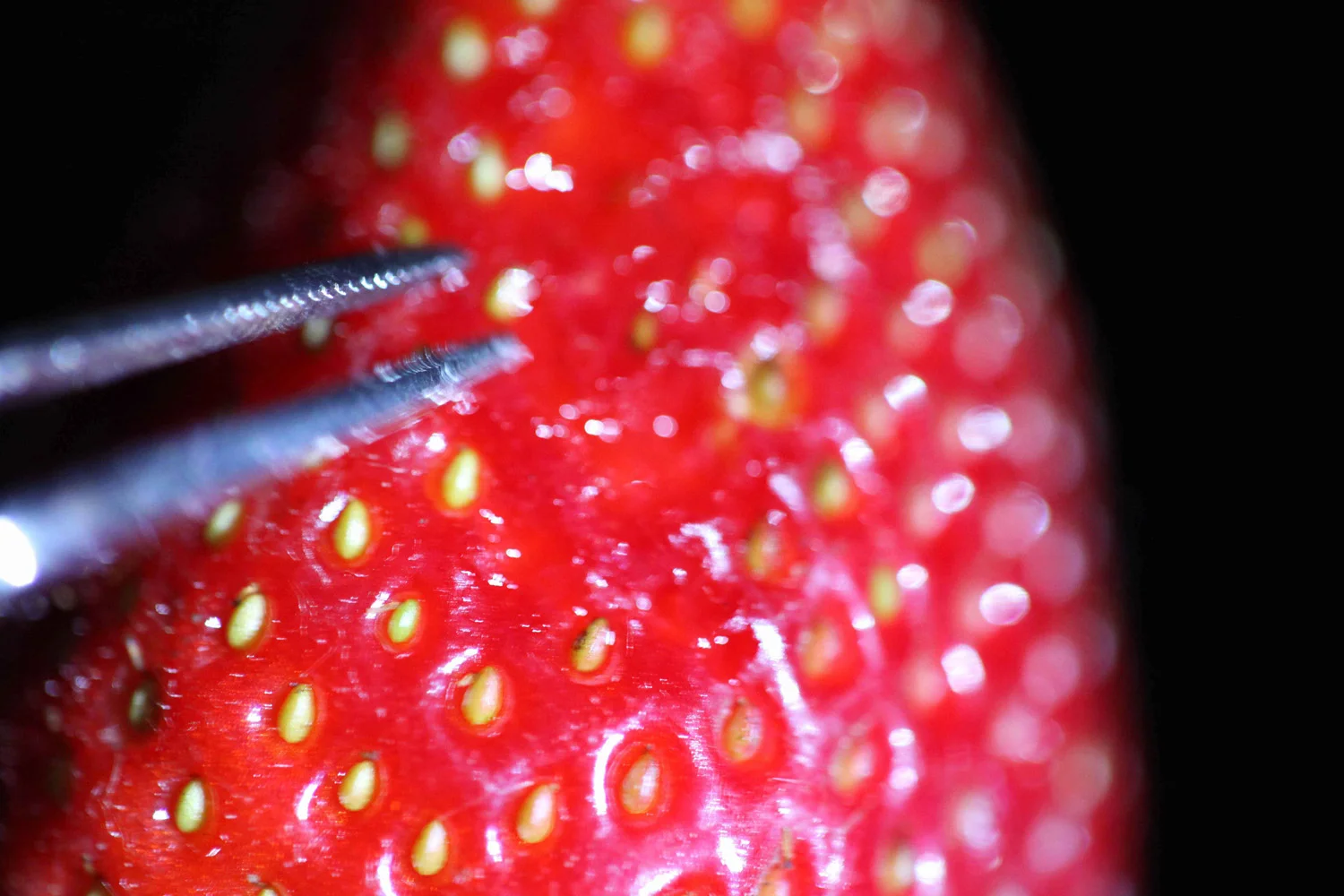SORTIE
17 August - 3 September 2011
Claire Anna Watson
“He that breaks a thing to find out what it is has left the path of wisdom.”[i]
So said—not Aristotle, not Galen—but Gandalf the Grey, in J.R.R. Tolkein’s The Lord of the Rings.
Read in a post-appendicitis convalescence, my 12-year-old brain reeled at this aphorism: it seemed eminent, obvious, and yet entirely counter-intuitive. How can you understand anything without getting to the heart of it? And how do you get there without breaking it? As distinct from the fantasy milieu of Lord of the Rings as Claire Anna Watson’s Sortie is, it forces the same kind of contemplation of the scientific underpinnings of the modern era, and makes evident our complex relationship with it.
In Sortie, a pair of lab-grade tweezers pluck the pips, one-by-one, off the surface of a plump, fleshy strawberry, which emerges from sensuous black shadows. Anticipation builds and dissipates as the fruit is first denuded, and then, horrifically destroyed. The dramatic, discomfiting soundtrack increases both the tension and absurdity of the work. It is just a piece of fruit: it is not just a piece of fruit. The literal breaking of the Strawberry in Sortie mirrors another kind of ‘breaking’, a process of pathologising which says that what is not useful in a human context must be eradicated or corrected. We must deem it broken before we can fix it, to justify what follows. Sortie both evokes and contradicts the scientific aesthetics which would reassure us and obfuscate its ethically uncertain aspects.
Lab coats; hygienic white; gleaming stainless steel; the pristine isolation of samples: all these images distract us from the imbalance of power between researcher and subject. This dynamic has been abused in the past and is still evident in common modern practice: we induce palsy in lab rats, fellow mammals involuntarily submitted to our cause; slice happily through brain matter—the physical stuff of our intellect, our identity, our souls; we alter the genetic structure of our food, even as we are still discovering new truths about our own.
Against this backdrop, is it surprising how easily suspicion is mobilised in the general public against, for example, climate science? Ironically, as public confidence in science seemingly fades, we are almost impatient for it to save us already: our environment and our economy absolutely dependent on the new technologies, new sources of energy, new industries which scientific research might yield. The dilemma of how to continue to embrace ethical challenges of science without rejecting its philosophy wholesale, is one which echoes around Watson’s body of work, particularly in the dark, tense, Sortie.
Sortie is charged with the tension of poiesis[ii], and Watson’s fascination with food as both every day object and site of transformation intersects with Heidegger’s concept of enframing.[iii] The strawberry, once accountable only to its own context in nature, has been designated as a food, to be ‘perfected’ by humans and drawn into a framework of human values. It is constantly poised in a state of potential—created to be destroyed, part of a complex of bringing—forth, to be transformed from matter into energy and into matter again, literally through our bodies. The ‘God trick’[iv] of technology, which constantly expands the range of our human gaze, is also established here through the use of large-scale High Definition Video projection. The extension of human perception through scientific and medical imaging has enabled us to see around and through things, the macro and the micro, the visible and the invisible, and always from the safety of an objective non-place. Developed largely with technological—not aesthetic—concerns in mind, the God trick is now readily within the average person’s grasp. The question is, does this expansion of vision enable us to see more, to see better? Or is our encounter with nature limited by these increasingly ‘accurate’ but increasingly abstracted, mediated imaging technologies? Again, Watson establishes a tension between our reliance on science, and our tendency to take it for granted.
Jessie Scott is a video artist, filmmaker and occasional writer. She is a founding member of Tape Projects collective.
[i] J.R.R. Tolkien. The Lord of the Rings (Volume I: The Fellowship of the Ring). New York: Ballantine Books, 1954-1974, p.259.
[ii] Heidegger refers to poiesis as ‘..the arising of something from out of itself… a bringing-forth’ Martin Heidegger. The Question Concerning Technology and Other Essays, Basic Writings. New York: Harper & Row, 1977, p.293.
[iii]Heidegger defines enframing as ‘to reveal the real’ and as a ‘way of revealing that holds sway in the essence of modem technology and that is itself nothing technological’. op. cit, p.302.
[iv] Donna Haraway. Situated Knowledges: The Science Question in Feminism and the Privilege of Partial Perspective. Feminist Studies 14, no. 3 (Autumn), Washington D.C.: Feminist Studies Inc., 1988, p.581.
[v] Matt Ridley. When ideas have sex. TED Talk (video), 2010, retrieved 2 August 2011: http://www.ted.com/talks/matt_ridley_when_ideas_have_sex.html.



